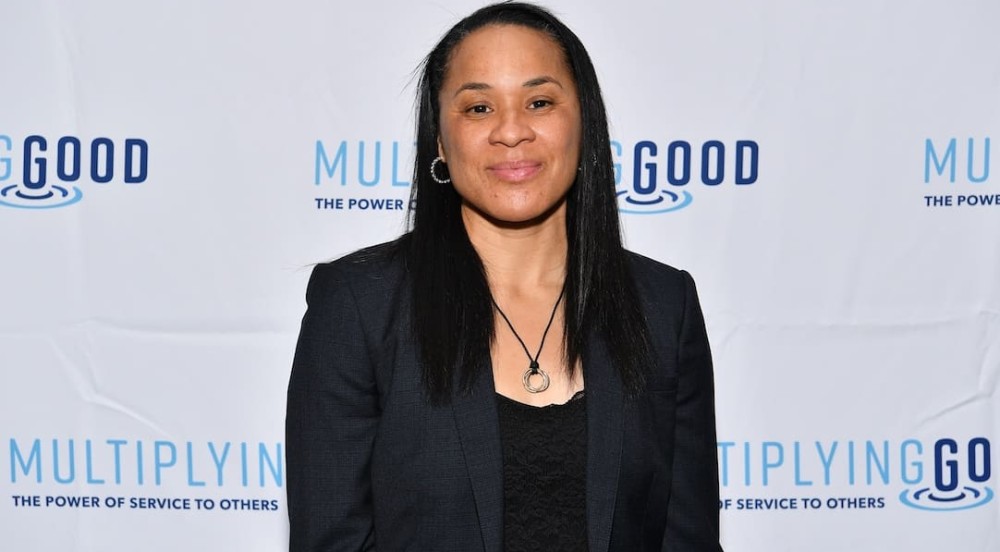University of South Carolina head coach Dawn Staley’s seven-year, $22.9 million contract puts her on par with the highest-paid women’s basketball coach in the country, the kind of progress that’s long overdue for Black women.
The list of accomplishments for University of South Carolina women’s basketball coach Dawn Staley, on their own merit put her in a class like no other.
After being named national player of the year coming out of high school, Staley attended the University of Virginia where she once again stood out. Staley led the Lady Cavaliers to the NCAA Tournament all four years, and was named national player of the year back-to-back seasons (1991 and 1992).
A standout career professionally with six WNBA All-Star selections to her name, Staley would move on to coaching.
Success once again was hers for the taking, first at Temple and most recently at South Carolina which has been a model basketball program for years under Staley’s leadership.
Oh, did we mention she has three Olympic gold medals (1996, 2000 and 2004) as a player, and a fourth as a head coach this past summer?
For all that Staley has done as a player and coach, what she is doing now in the space of pay equity for women will be the true legacy she leaves on the game. The University of South Carolina Board of Regents recently announced Staley’s new contract—7 years for $22.9 million—which puts her salary, like her resume, in a class unto itself.
She is now the highest-paid Black coach in her sport and tops in the SEC in addition to being on par with the top-tier coaches in all of women’s college basketball.
“I didn’t do this for me,” said Staley, according to USA Today. “I am an advocate of equal pay and overall, this is a huge statement for women and for Black women—and not just in sports but all over the country—when you think about how much less they’re paid on the dollar compared to men.”
She’s right.
If you look at the data, there’s an undeniable trend that’s more than anecdotal and truth be told, disturbing. The most recent Pew research study confirms what we have seen for decades and sadly, continues to this day. Women make noticeably less money for the same work men do.
But don’t get it twisted.
This isn’t about the Gamecocks backing up the Brinks truck to keep their coach around. By paying her top-dollar, it speaks to a greater understanding they have of her importance to the school’s culture of success and diversity, embracing the fact that she’s one of the best in the world at what she does and, therefore, should be paid accordingly.
This doesn’t mean every single women’s basketball coach should get a huge bump in pay. There are surely going to be some who aren't deserving of the major payday, just like there are men— lots of men—whose salary and accomplishments in that role are not aligned.
Staley is no different than most of us when it comes to getting paid.
If you do the work and you do it well, then your pay should reflect that regardless of your gender or skin color.
South Carolina has clearly co-signed on her vision when it comes to developing a winning, sustainable basketball program that includes a national championship in 2017 and to be honest, what would have likely been a second NCAA title in 2020 if not for the global pandemic which among other things, led to the cancellation of the NCAA women’s basketball tournament.
She could easily stay quiet on the matter of pay equity, cash those fat checks and keep it moving. But Staley recognizes that this moment is so much bigger, so much more impactful than her individual success.
There will be other standout women’s basketball coaches in the coming years who will stand out as being among the best in the country and what they do, just like Staley. And their respective schools and universities will have the opportunity to keep them in the fold long-term and pay them accordingly.
It is that latter point about pay equity, that we will remember most about Staley.
She has had an amazing basketball journey that includes success on every level of play. But it is the voice that she’s providing to the conversation surrounding pay equity that will serve as the ultimate game-changing moment in a career filled with them.













